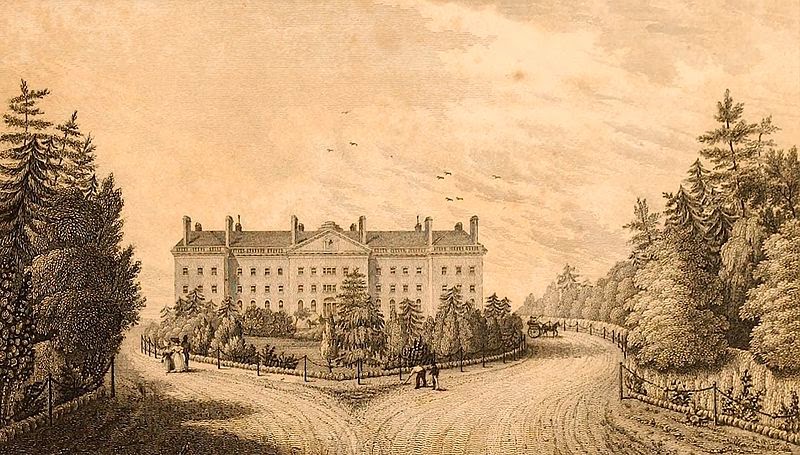THE SLEEPER
Edgar Allan Poe
AT midnight, in the month of June,
I stand beneath the mystic moon.
An opiate vapour, dewy, dim,
Exhales from out her golden rim,
And, softly dripping, drop by drop,
Upon the quiet mountain top,
Steals drowsily and musically
Into the universal valley.
The rosemary nods upon the grave;
The lily lolls upon the wave;
Wrapping the fog about its breast,
The ruin moulders into rest;
Looking like Lethe, see! the lake
A conscious slumber seems to take,
And would not, for the world, awake.
All Beauty sleeps!--and lo! where lies
With casement open to the skies
Irene, with her Destinies!
Oh, lady bright! can it be right--
This window open to the night?
The wanton airs, from the tree-top,
Laughingly through the lattice drop--
The bodiless airs, a wizard rout,
Flit through thy chamber in and out,
And wave the curtain canopy
So fitfully--so fearfully--
Above the closed and fringed lid
'Neath which they slumb'ring soul lies hid,
That, o'er the floor and down the wall,
Like ghosts the shadows rise and fall!
Oh, lady dear, hast thou no fear?
Why and what art thou dreaming here?
Sure thou art come o'er far-off seas,
A wonder to these garden trees!
Strange is thy pallor! strange thy dress!
Strange, above all, they length of tress,
And this all solemn silentness!
The lady sleeps! Oh, may her sleep,
Which is enduring, so be deep!
Heaven have her in its sacred keep!
This chamber changed for one more holy,
This bed for one more melancholy,
I pray to God that she may lie
Forever with unopen'd eye,
While the dim sheeted ghosts go by!
My love, she sleeps! Oh, may her sleep
As it is lasting, so be deep!
Soft may the worms about her creep!
Far in the forest, dim and old,
For her may some tall vault unfold--
Some vault that oft hath flung its black
And winged pannels fluttering back,
Triumphant, o'er the crested palls,
Of her grand family funerals--
Some sepulchre, remote, alone,
Against whose portal she hath thrown,
In childhood, many an idle stone--
Some tomb from out whose sounding door
She ne'er shall force an echo more,
Thrilling to think, poor child of sin!
It was the dead who groan'd within.



